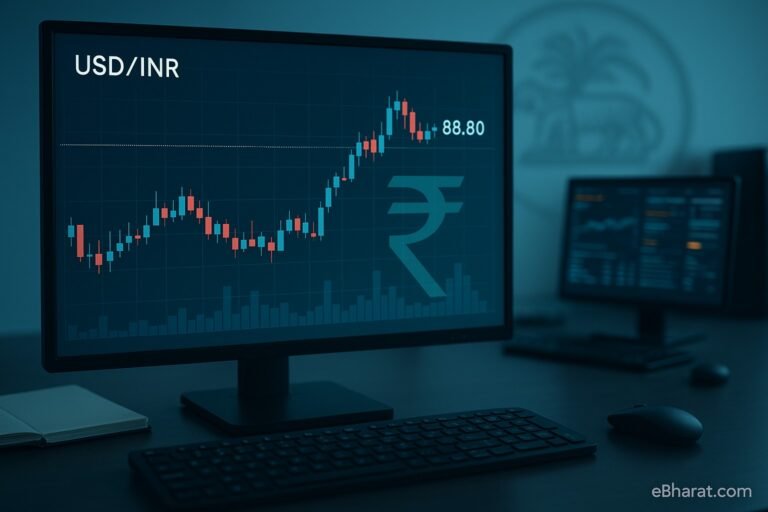
Mumbai | September 24, 2025 — A sharp rise in insider selling is drawing investor attention just as the rupee hovers near record lows and foreign flows stay choppy. Latest trackers show promoters and key insiders sold ~₹25,500 crore in 2025 (Jan 1–Sept 16), against ₹3,860 crore of insider buys—leaving a sizeable net sell figure. The skew comes on the heels of a heavy Q1 sell-down and a steady fall in aggregate promoter ownership. Together, these trends can be an early caution light for Nifty if macro crosswinds persist.
What the data says
PRIME Database estimates private promoter shareholding slipped to an eight-year low of 40.58% as of June 30, 2025, after ₹54,732 crore worth of promoter stock was offloaded in Q1 FY26. While domestic institutions filled in parts of the demand, the long trend in falling promoter stakes and clustered block deals is hard to ignore.
At the stock level, 2025’s largest insider sales include Bajaj Finserv (~₹5,502 cr), with other notable activity in JB Chemicals, Apollo Hospitals and more—illustrating that supply has come from both financials and healthcare names. Context matters for each transaction, but the market-wide pattern is the key signal.
Why it can matter for Nifty
Insider selling isn’t automatically bearish—founders diversify, fund capex, or tidy personal finances. But broad, persistent selling typically clusters around strong markets and rich valuations, creating incremental equity supply just as external demand may weaken. This year, the backdrop includes FPI outflows and a soft rupee near record lows, both of which can compress risk appetite and raise the cost of capital. In early September and into this week, FPIs continued to withdraw money from equities, while the rupee traded around ₹88.7–₹88.9 per USD despite reported RBI support.
Academic evidence is nuanced—insider trades don’t always predict near-term earnings surprises—but several studies note that pre-announcement insider activity can precede abnormal returns in certain settings. For portfolio construction, that argues for position sizing and selectivity when insider selling broadens out.
By the Numbers (2025 to date)
Market reaction & what to watch
When insider supply meets fragile macro (FX weakness, foreign selling, tariff/visa overhangs), rallies can stall and breadth can thin—even if headline indices hold ranges. For Nifty, watch:
- Block-deal calendars and large promoter tranches;
- FPI flow trend (sustained outflows tighten liquidity);
- USD/INR trajectory around 88–89 (import-cost and multiples channel).
Risks & counterpoints
A single promoter sale doesn’t equal a top—context (seller type, use of proceeds, valuation) is critical. Strong domestic mutual-fund SIPs can absorb supply, and if macro steadies, issuance clears smoothly. Still, a broad, sustained sell bias from insiders is rarely helpful for medium-term returns.
Outlook
Treat the current phase as a yellow light: tighten screens on governance and cash-flow quality, fade crowded small/mid-cap froth, and prefer balance-sheet strength. If rupee pressure eases and foreign flows stabilise, the market can absorb supply. If not, heavy insider selling could evolve from a background caution into a drag on Nifty’s risk-reward.













